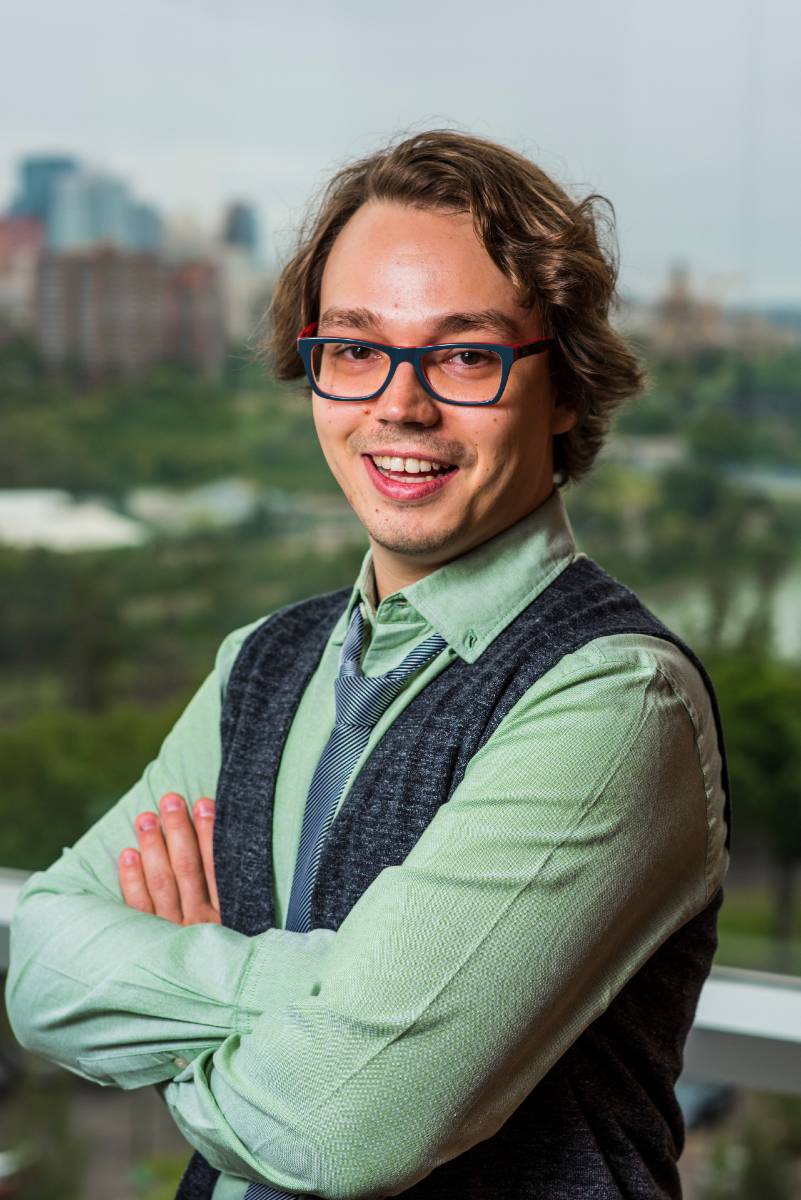Graduate recognized for thesis on theoretical physics of black holes
Katie Willis - 18 August 2021
Alumnus Jens Boos (’20 PhD) has been recognized across the country for his groundbreaking research on black holes and whether or not singularities exist within them.
A Vanier Scholar, Boos graduated from the Department of Physics in Fall 2020 after completing his PhD under the supervision of Valeri Frolov, professor and Killam Memorial Chair.
In addition to receiving the University of Alberta Faculty of Science Dissertation Award, Boos has also been awarded the PR Wallace Thesis Prize of the Canadian Association of Physicists (CAP), the Division of Theoretical Physics (DTP), and the Winnipeg Institute for Theoretical Physics, given out annually to the best Canadian PhD thesis in theoretical physics.
Hear more from Boos about receiving this recognition and learn more about his research.
What does this recognition mean to you as a scientist?
Honestly, it made me feel more connected to physics in Canada. I started typing my PhD thesis in early spring 2020. When COVID-19 happened, everybody started working from home. I spent four months working on my thesis with occasional phone calls with my advisor. It was a very exhausting and also lonely time, because scientists rely so much on the direct exchange of ideas. My defense in September 2020 was done remotely via Zoom.
When I got the message that I was awarded the Dissertation Award as well as the PR Wallace Thesis Prize I could not have been happier. The latter came with the fantastic opportunity of an invited talk at an annual division of Theoretical Physics meeting, and it was exhilarating to share my research with a larger audience of leading theoretical physicists in Canada.
Tell us about the focus of your research.
I am interested in one of the most extreme forms of matter: black holes. These are super dense objects in the universe, surrounded by a so-called event horizon. Once you fall through this event horizon you can never get out again, and not even light can escape. This is why black holes are called black: they swallow up everything, even light.
Deep inside black holes, so Albert Einstein tells us, there are so-called singularities (like the seeds inside an apple). These singularities are places in space and time where gravity becomes infinitely strong. That is a very big problem, because at those places, space and time stop to exist. The universe, as we know it, comes to an end.
Black holes are not science fiction anymore—they really exist! They have been seen directly in the black hole photograph by the Event Horizon Telescope collaboration in 2019. And one year later in 2020 the Nobel Prize in Physics was awarded to the prediction and discovery of black holes from astrophysical observations of the supermassive black hole Sagittarius A in the center of our own galaxy.
Because we know that black holes exist we have to take these singularities seriously. Do they really exist, deep inside the black holes of our Universe? I want to find a theory of gravity where black holes do NOT have these singularities at their center. And in my PhD thesis I explore a potentialway to do that with something called "nonlocality."
What made the University of Alberta's Faculty of Science the ideal place to do your PhD?
Professor Frolov and Professor Page are famous scientists in gravitational research, and during my master’s at Perimeter Institute I heard many good stories about the gravitational research at the University of Alberta: it was founded by Prof. Werner Israel in the 1960s, and has shaped and influenced internationally respected gravitational physicists like Prof. David Kubiznak (Perimeter), Prof. Eric Poisson (Guelph), Prof. Frans Pretorius (Princeton), and others. So I was very excited when in 2016 I was accepted at the U of A with a PhD Recruitment Scholarship and a Dean's Excellence Recruitment Scholarship Award, to do my PhD in the U of A gravity group, later as a Vanier Scholar.
I think the University of Alberta was a wonderful place for me to work on my PhD. What impressed me the most was the scientific outreach activities, such as the annual Images of Research Competition in cooperation with the campus libraries, and of course the Three-Minute Thesis (3MT) competition where I was lucky to be a U of A-internal finalist in 2019. Hopefully it will be possible to travel again soon, and one of my first stops will be Edmonton, Canada.
What's next for you?
Right now I am a postdoctoral research associate in high-energy physics at William & Mary in Virginia, USA, where I arrived after my PhD in fall 2020. I am also excited that soon my PhD thesis will be published as a book with Springer Theses! But after that... who knows? I would love to become a professor in theoretical physics!
